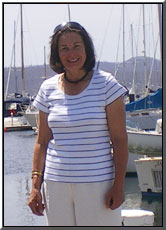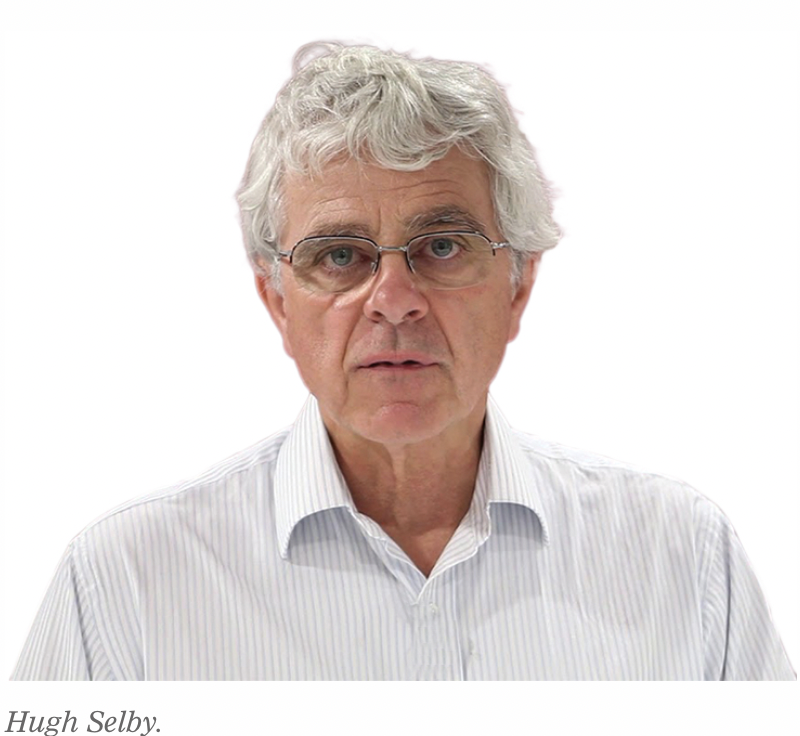Today is the second anniversary of the tabling of papers in the Tasmanian Legislative Council that dissect many serious problems with the investigation and prosecution of Sue Neill-Fraser for the 2009 Australia Day murder of her partner, but Tasmanian media and law bodies have been careful not to have a look. Former barrister HUGH SELBY (a co-author of the tabled papers) says that’s the Tassie way, but does it have to be?
THERE’S a world in which justice always triumphs and there’s the real world where injustice more than holds its own, so much so that the pursuit of justice seems a flight of fancy.
There must have been times when recently released Kathleen Folbigg and her supporters wondered if their efforts would always be in vain.
It wasn’t just good science that exonerated Ms Folbigg for the unexpected, unexplained deaths of her children. Her success, after 20 years in prison, reflected the efforts of all those who helped prepare and present her case, as well as the repeated preparedness of the NSW legal system and government to hear, consider and decide upon her evolving case for innocence.
That is not to say the system did so quickly, or even with real thought to her innocence. It is to say that they were prepared to be accountable, come what may.
Such preparedness to be accountable, to publicly revisit past decisions, is the mark of a legal system and legal actors in which the community can have confidence.

Sue Neill-Fraser, Australia Day 2009
The investigation, prosecution, and post-conviction conduct by Tasmanian authorities of Sue Neill-Fraser for the 2009 Australia Day murder of her partner is an example of what can go wrong and stay wrong with our criminal justice system.
Elsewhere in Australia, the publicly available information of the many defects in the conduct of Tasmanian police, lawyers, and politicians would have caused a public inquiry a long time ago.
But Tasmania, despite it having a population of around 550,000, compared to the ACT’s 470,000, is a place in which mistakes are buried, not admitted, not displayed. But it goes further than burying the mistakes, because those who draw attention to such mistakes do so at their peril.
It is clear enough, for those handful who have done all the necessary work or bothered to read it, that the decision to charge her was wrong and that her trial was beset with too many errors to be considered a “safe” conviction.
The publication of the following article is on the second anniversary of the tabling in the Tasmanian Legislative Council of papers that dissect the many serious problems with the investigation and prosecution of Ms Neill-Fraser.
Although those papers have the protections that come from such tabling, Tasmania media and law bodies have been careful not to have a look. That is the Tassie way.
Fortunately, there are several independent State politicians who raise the issue from time to time in the Parliament, most recently this month. Hats off to them; however, Tasmanian media does not report what they say.
This is a case that cries out for a fresh look by dispassionate, skilled outsiders. The aspirational pursuit of justice won’t achieve that. Hence the following article takes a different approach, imagining a world that is not Tasmania’s
present, but what it might try to be…
A word to the wise from the Delphic cats
HAMMURABI and Solomon do more than sleep in the sun, swish their tails, stretch, scratch the post and chase each other around the court, police and lawyer precinct.
They do more, much more, because their family name is Delphi, famous or infamous for their cross-generational ability to be ahead of our time, to know what awaits us.
Their forebears were recruited by military and naval strategists: Horatio Nelson had one of them at Trafalgar, Douglas MacArthur had another when he returned to the Philippines. The Americans who embroiled us in Vietnam and then in Iraq and Afghanistan forgot to get one. Ben Roberts-Smith didn’t know that he needed to have one.
In Australia their use has always been less glamorous, but still significant. The most successful punters have always had a Delphi and the demand for kittens always outstrips supply. You will never find one at a shelter for deserted pets.
Nor will you find them locked inside or dependent on manufactured cat meals. These are cats that roam free and wide, taking their food as they find it: a squeaking mouse here, some chicken liver pate there and first-grade sashimi tuna when they can find it.
Hammurabi and Solomon are paired as father and son, as law maker and dealer in wisdom. Here is what they recently shared would come to pass.
The unexpected can bring about change
They announced on PURR that following the huge success of “The Teacher’s Pet” podcast a team of podcast makers would descend upon Hobart collecting statements, gathering insights, and then release to the wide world of podcast listeners the tantalising story of who rules Tassie, how they do it, their success in keeping the lid on mistakes, how they crush dissent by inspired misuse of the legal system, and how they control the local media, including our national treasure, the ABC. The unconfirmed series title was “Rotten to the Core?”.
When this Delphic pronouncement was made there were flat denials from the major podcasters.
Their credibility was dented when it was revealed that big money contracts for advertising to run within the proposed podcasts were circulating, not only among the biggest names in “true crime” publishing, but also among the “sports bets” agencies.
Their next announcement, also on PURR, was that a hotel floor would be leased for six months to accommodate not just the investigators, but also the reporters, voice-over talent, editing team and specialist lawyers who would ensure that the production could not be strangled by threats of defamation action.
That reminded some callers to talkback morning radio to reminisce about how certain lawyers – naturally unnamed – had been known to require articles about what was now the podcast focus – endemic, top to toe, corruption – to be quickly taken down, lest the publisher risk insolvency from defending defamation action.
The big question is “what will happen next?”, surprising everyone, except the cats, Intimations about future events can, of themselves, set aside the steady flow and lead to previously unimagined, future changing acts.
The impossible becomes possible
The government, clinging by a thread to power, is suddenly interested – as it has never been before – in the interests of some independents. That which was under the table is now on the table.
It’s front-page material, covering the breakfast plates of Tassie’s entrenched movers and shakers. There is the prospect of an 180-degree turnabout from thwarting any inquiry into a debacle much bigger than Azaria Chamberlain, more sinister by far than the Folbigg tragedy.
This resolute opposition has been maintained year after year, and well into a second decade, even as premiers and attorneys-general came and went.
The successful modus operandi has been to rely upon silence, no response at all to any allegations, so that no matter how often they were repeated the allegations floated in a void of nothing.
Boosting the effectiveness of that response has been ensuring that local media understood that taking up the serious aspects of the story was a silly idea, so silly that it might lead to news trickles drying up.
Media has paid no attention to the deficiencies in the police investigation, the false evidence at the trial, failure by police and prosecutors to disclose material to the defence, or the belittling of a sworn admission to being present at the crime while the person taken to trial and convicted was not there.
Instead, media reporting has been limited to community interest events, such as a photo and a few lines about apparently futile, but charming protests about injustice and miscarriages of justice on the lawn outside Parliament House.
Now not so futile. Those indefatigable protesters kept and kept the spark alive, even as the rakes were burying any embers with the heavy mantle of out-of-sight and out-of-mind.
No-one has wanted to admit to any of: mainstream interviews about the problems being refused or cancelled; letters not acknowledged or published; submissions never replied to by the premier, the attorney-general, the integrity commission, etcetera; and, the failure by local media, lawyers or major party politicians to ever inspect compelling documentary evidence of a stuff up followed by a cover up, all of which was tabled in the Legislative Council, and so is able to be used without threat of defamation.
Imagine Walter and his team in Hobart
In response to the Delphic insights, the government decides that it, not a podcaster, will take the initiative. Their insider spin merchants advise that well financed, entertaining, daily episodes on its long-term shortcomings would be electoral death by a thousand cuts.

Walter Sofronoff KC
(Courier Mail photo)
It announces that it has invited former Supreme Court Justice Sofronoff, he of Queensland and ACT inquiry fame, to head up a Commission of Inquiry into selected aspects of the Tassie Criminal Justice system and related issues.
The premier speaks of resolving issues of great public interest and that now is the time to do what is right and necessary.
The commissioner’s brief is wide, much more so than his recent assignments.
The list is long, and time consuming, as was the Ancients’ cleansing of the stables. He and his team are to examine whether:
- police investigation standards, the quality and independence of forensics services and its forensic officers are fit for purpose,
- the prosecutor’s office complies with its disclosure obligations,
- lawyers require further training in the handling of expert evidence and the management of witnesses who come with any special needs,
- the lawyer’s professional standards body is meeting the standards that it requires of practicing lawyers,
- the integrity commission acts in accordance with its “charter” and is truly independent of outside interests,
- there is a culture of bullying and intimidation within the legal profession,
- successive governments have turned a blind eye to tainted convictions,
- the conduct of criminal appeals meets the standards of preparation and delivery expected on the mainland,
- certain actions are in accord with judicial conduct norms,
- the media reporting and non-reporting of criminal matters reflects an independent, competent approach to their task, or is better described as living off the drip feed of untested media releases.
The Commissions of Inquiry Act is to be amended. Section 10 is to have a new subsection, 5, that prevents publication of any part of the report until after it has been tabled in both houses of the parliament. That tabling is required within 10 sitting days of the governor receiving the report.
This amendment reflects experience in the ACT where one newspaper obtained a leaked copy of an inquiry report and published a series of articles before the government had made any comments or had the chance to make redactions. Ho hum.
What the community needs to know
PURR reports that some “senior” figures are either planning to retire or have discovered new ways to approach their job with far more enthusiasm for doing something than was the case up to now.
Dusty old files are being called up from archives. New files are being opened, stamped “Urgent”.
Hammurabi and Solomon are running tutorials for the seagulls and pigeons about what will likely happen at this humdinger of an inquiry.
Hammurabi explains the various, long-established legal principles that have been neglected in this saga.
Deliberately giving false evidence is a serious criminal offence. Threatening criminal and quasi criminal proceedings as a means of silencing critics is professional misconduct.
So too is maintaining “non-disclosure”, especially when such non-disclosure entailed not only a wrongful conviction but may have sustained it, years later, on an appeal.
Initiating professional conduct proceedings for the dominant purpose of a cover up by silencing the messenger would, if demonstrated, lead to some interesting new law, as the matter would inevitably be run up the appeal ladder as far as possible.
Solomon brings along a couple of kittens and a piece of old matting. He tells the kittens to unravel the mat. The birds look on, safe in their perches in the trees and on the power lines. The “unravelling”, he tells them, begins with a small weakness, possibly discovered accidentally. The small piece is pulled and it catches at another point, disclosing another weakness.
The kittens are innocently proving his point. The mat is coming apart. That mat, says Solomon, is what the independents are now unpicking. If all the litter were here, he says, the end for this mat would come quicker.
Kittens, independents united, “never-say-die” protesters, media doing its job – working together, they will upset the apple cart.
That mat, Solomon says, is like a thick vine growing over the light wells of justice. Unpick it and there is light.
 “CityNews” legal commentator and former barrister Hugh Selby, along with Barbara Etter, wrote the papers tabled in the Tasmanian Legislative Council.
“CityNews” legal commentator and former barrister Hugh Selby, along with Barbara Etter, wrote the papers tabled in the Tasmanian Legislative Council.
Hugh Selby’s free podcasts on “Witness Essentials” and “Advocacy in court: preparation and performance” can be heard on the best known podcast sites.

[Rejected for legal reasons.]
Great work, I put one up off the cuff. Your writ needs to be analysed in depth.
I think I am going crazy, is that a crime.
Owen.
Andrew – read many years ago that a city generally needs a population of one million for organised crime to function /survive/ even flourish – presumably meaning organised crime in the full sense – Lack of a proper justice system and a fair and decent enforcement when required – open and accountable public media – radio – newspapers etc. reporting to the citizens. Tasmania seems to show that half that population size is quite enough for corrupt police / courts / Politicians and government to pull the wool over most of our eyes ! To give us a bum steer . Takes all of the above little darlings – working together – a group effort – a complete box of rotten apples – throw the lot out ! Plant a new Orchard.
It is so sad, society; Owen speaking: I am living in a caravan park, been here over 10 years. I am fortunate to have decent people living close at this time, because they come and go. But the latest abuse in society is young children sucking on vapours. That is the word at this level.
Owen.